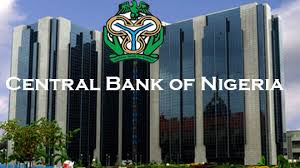The journey to the Payments System Vision 2020 (PSV 2020) started in 2007 with the objective of making the Nigeria Payments System internationally recognised and nationally utilised. The phased implementation of the vision and other developments in the financial space including the pursuit of the Financial System Stability Vision 2020 (FSS 2020) has stimulated an exponential growth in financial activities and hence in the volume and value of payment flows both within and across national borders.
The rapid growth in the volume and value of financial transactions represents an important source of revenue for the providers of payment services particularly banks and other stakeholders. Other benefits include: fostering safety and efficiency of payment, clearing, settlement, and recording systems, promotion of financial system stability, speed of service and transactions, development of new lifestyle products, financial inclusion, etc. The growth has also significantly altered the risks associated with the payment and settlement of these transactions. As a result, payment and settlement systems are important potential sources of systemic risks.
Furthermore, payments system may increase, shift, concentrate, or otherwise transform risks in unanticipated ways. The failure of one or more of the participants in a payment system to settle their payments or other financial transactions as expected, in turn, could create credit or liquidity problems for participants and their customers, the system operator, other financial institutions, and the financial markets the payment system serves. Such a failure may ultimately undermine public confidence in the nation’s financial system.
It is therefore necessary to effectively manage the risks associated with payments system, as such systems which inherently create interdependencies among financial institutions can create systemic risks. A disruption may originate from any of the interdependent entities, including the system operator, participants in a payment system, or other systems, and spread quickly and widely across markets if the risks that arise among these parties are not adequately measured, monitored, and managed. For example, interdependencies are usually based on a series of complex and time sensitive transactions and payment flows which, in combination with a payment system’s design, can lead to significant demands for intraday credit or liquidity, on either a regular or an extraordinary basis.
The Central Bank of Nigeria (CBN) as a settlement institution plays an important role in the Payments System. It is the primary provider of intraday balances and credit to foster the smooth operation and timely completion of settlement processes. To that extent, the CBN may face the risk of loss if such intraday credit is not repaid as planned.
Furthermore, mitigating the risks associated with payments system is important for the effective management of monetary policy and banking supervision. For example, the orderly settlement of Open Market Operations (OMO) and the efficient movement of funds throughout the financial system via the financial markets and the payments system that support those markets are critical to the effective implementation of monetary policy. Similarly, supervisory objectives must take into account the risks that payment systems pose to the financial system by participating directly or indirectly in, or providing settlement, custody, or credit services.
In the interconnected environment, the safety and efficiency of these systems may affect the stability and soundness of financial institutions and consequently the financial stability of the country. As a result, safeguarding the integrity of the payments system in Nigeria has acquired additional significance and calls for the upgrading of associated risk management procedures through concerted efforts by market participants and the relevant authorities, notably the CBN.
In light of the above, the CBN approved the Nigerian Payments System Risk and Information Security Management Framework (this Framework) to guide the management of risks associated with the payments system in Nigeria.

Leave a Reply